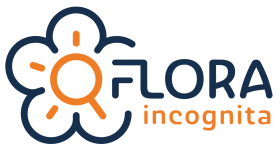Author Archive for: floraincognita
About floraincognita
This author has not written his bio yet.
But we are proud to say that floraincognita contributed 16 entries already.
Entries by floraincognita
“The advancement of AI methods will create key momentum for environmental and biodiversity research”
/in Project/by floraincognitaInterview with Prof. Patrick Mäder about the interaction of computer science, biology and Big Data As a young research group at TU Ilmenau, the Data-intensive Systems and Visualization Group (dAI.SY), with currently more than 20 scientists and many student collaborators led by Prof. Patrick Mäder, combines diverse expertise in computer science, engineering and related scientific […]
Flora Incognita Update
/in Flora Incognita ++, Flora Incognita App/by floraincognitaOur new release brings you a modern and simplified user experience, and a whole bunch of new features to help you further enjoy your plant findings: Identify Plants: The new user interface is more modern and clear. It’s now easier to capture and identify a plant in nature. You can disable the autofocus with a […]
Deep Learning in Plant Phenological Research: A Systematic Literature Review
/in Flora Incognita ++, Science/by floraincognitaNegin Katal conducted a systematic literature review to analyze all primary studies on deep learning approaches in plant phenology research. The paper presents major findings from selected 24 peer-reviewed studies published in the last five years (2016–2021). Research on plant phenology has become increasingly important because seasonal and interannual climatic variations strongly influence the timing […]
Can grasses be identified automatically via smartphone images?
/in Flora Incognita ++, Science/by floraincognitaCouch grass or ryegrass? Grasses are considered species, that are difficult to identify. The couch grass (Agropyron repens) is feared and often controlled and in gardens. Ryegrass (Lolium perenne), on the other hand, is the basis of many lawn seed mixtures and is a valuable forage grass. The question is: Can you even differentiate them? […]
Flora Incognita demonstrates high accuracy in Northern Europe
/in Flora Incognita ++, Flora Incognita App, Science/by floraincognitaThe Flora Incognita project aims to inspire people – to get to know their (botanical) surroundings better, but also to think outside the box and reflect on the possibilities of artificial intelligence, deep learning or biodiversity. A great example of this is what Jaak Pärtel did: As a student project, he investigated the accuracy of […]
Promote cultivation of wild fruit
/in Cooperation, Project/by floraincognitaIn the Wild Fruit Project of the Austrian Federal Forest Research Center (BfW), measures are being taken to secure and maintain the biodiversity of rare, native wild fruit trees in Austria – an opportunity for silviculture and biodiversity in times of climate change. The Flora Incognita project provides important distribution information on endangered wild fruit […]
Digital beekeeping to learn and play
/in Cooperation, Flora Incognita ++, Project/by floraincognitaWith the “beeactive” app from the Würzburg Bee Research Association, children and young people can playfully learn more about bees and the biodiversity of various wild plants in their environment. The aim is to bring nature conservation and species protection into focus and to broaden their awareness of this. Flora Incognita provides the automatic identification […]
Automated plant identification with the Flora Helvetica app
/in Cooperation, Flora Incognita ++, Project/by floraincognitaWe are pleased to announce a successful collaboration with Haupt Verlag. Since version 2.3, the Flora Helvetica app includes a function for the automatic image-based identification of plants, which is provided as part of the Flora Incognita project. Thus, for the first time, it is possible with a single app to identify plants automatically as […]
How smartphones can help detect ecological change
/in Flora Incognita ++, Science/by floraincognitaLeipzig/Jena/Ilmenau. Mobile apps like Flora Incognita that allow automated identification of wild plants cannot only identify plant species, but also uncover large scale ecological patterns. These patterns are surprisingly similar to the ones derived from long-term inventory data of the German flora, even though they have been acquired over much shorter time periods and are […]
Social media
Project leader
Technische Universität Ilmenau
Max Planck Institute for Biogeochemistry
Contact
support@floraincognita.com
Latest News
 New study presents method to extract phenology information from images17. October 2025 - 9:05
New study presents method to extract phenology information from images17. October 2025 - 9:05 Citizen Science: Update from the PollenNet Project25. September 2025 - 16:13
Citizen Science: Update from the PollenNet Project25. September 2025 - 16:13 CC BY-SA 4.0Invasive plants in the EU Part 6: Annual herbaceous plants26. August 2025 - 15:29
CC BY-SA 4.0Invasive plants in the EU Part 6: Annual herbaceous plants26. August 2025 - 15:29
Project management
Contact
support@floraincognita.com
